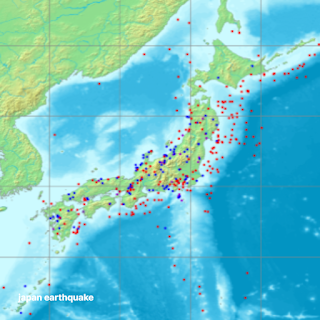Tired of being tired?
Click to unlock real sleep support — no prescriptions needed.
This post contains affiliate links, and we may earn a small commission at no extra cost to you.
Is There a Scientific Basis for the Warning of a Major Earthquake in Japan in July 2025
- Get link
- X
- Other Apps
Explore whether the widespread warning of a major earthquake in Japan in July 2025 has any verified scientific foundation or stems from non-scientific sources.
Can a Major Earthquake Strike Japan in July 2025 According to Science
The origin of the claim that Japan will experience a major earthquake in July 2025 is not rooted in scientific analysis. Instead, it traces back to a fictional manga titled “The Future I Saw” published in the 1990s and republished in 2021. The manga’s author, Ryo Tatsuki, wrote about a vision involving a catastrophic event occurring on July 5, 2025. Despite gaining traction online, especially in East Asia, this vision is speculative fiction and has no correlation with any validated seismic data or forecasts.
Scientific consensus strongly opposes the idea that earthquakes can be predicted with such precision. Earthquake forecasting can assess long-term probabilities based on geological activity and historical data, but no technology or methodology currently allows scientists to predict the exact time, date, or location of an earthquake. Experts from leading Japanese universities and national agencies have publicly confirmed that no scientific model supports the July 2025 prediction.
The rumor has nevertheless affected public perception and tourism. Travel agencies in regions such as Hong Kong, Taiwan, and South Korea have reported significant cancellations for trips scheduled in late June and early July 2025, with some drops exceeding 80 percent. This reaction highlights the influence of misinformation and the necessity for public communication based on credible sources.
Japan is internationally recognized for its comprehensive earthquake preparedness systems. The nation operates an early warning system that uses seismic sensors to provide rapid alerts seconds before shaking begins. Additionally, it conducts regular disaster response drills, maintains stringent building codes, and continues to invest in seismic research. These measures are designed to reduce risks and protect lives, regardless of when the next earthquake might occur.
In summary, the claim that a major earthquake will strike Japan in July 2025 lacks any scientific evidence. It originates from a fictional narrative rather than geological research. While the risk of a large earthquake in Japan remains real over the coming decades, no expert or institution has issued a time-specific warning for July 2025. Misinformation can cause unnecessary panic, but staying informed through credible, science-based sources remains the most effective way to ensure safety and preparedness.
Personally, I believe that while it's natural for people to feel anxious in the face of dramatic predictions, it's crucial to base our actions on scientific understanding. By focusing on preparedness and trusting in proven safety systems, we can respond to seismic threats with confidence rather than fear.
- Get link
- X
- Other Apps



.png)

.png)